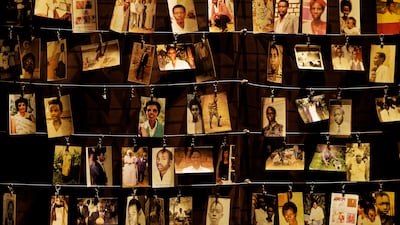For the first time in its nearly eight-decade history, the UN Security Council has passed a resolution aimed explicitly at the intrinsic relationship between discrimination, persecution and conflict.
Resolution 2686, jointly sponsored by the UAE and UK and passed unanimously by the 15-member council, calls for UN member states and other “relevant stakeholders” to, among other things, actively promote tolerance and peaceful co-existence, and to address hate speech and extremism. The Security Council also called on the UN’s own envoys and its peacekeeping and special political missions to engage in the effort, by keeping abreast of instances of hate speech, racism and acts of extremism that might impact international peace and security.
The relationship between hate speech and violence is well understood, though rarely emphasised enough. In the past century, the world has witnessed a great number of mass atrocities. In several of them, hate speech played a direct, causal role.
In the 1930s, Germany’s Nazi regime laid the groundwork for the Holocaust with a large-scale hate speech and disinformation campaign against Jews and other minority groups. And in the 1970s, the Khmer Rouge movement in Cambodia sought to label the country’s ethnic and religious minorities “enemies of the people”, before undertaking a genocide that killed up to two million Cambodians. The same story has been repeated over and over again in Rwanda, Bosnia and Herzegovina and Myanmar, and beyond.
The role of social media and other digital platforms in propagating hate speech these days may make it seem like a very contemporary phenomenon, but the weaponisation of people’s more intolerant impulses for selfish and, eventually, violent ends is not new. Nonetheless, the tools used are more potent now.
It is for this reason that Antonio Guterres, the UN Secretary General, has made advocating against hate speech a central focus of his tenure in office. In 2019, Mr Guterres launched a “Strategy and Plan of Action against Hate Speech”, designating the UN’s special adviser on genocide prevention as its point person.
“Over the past 75 years, the world has seen hate speech as a precursor to atrocity crimes, including genocide,” Mr Guterres noted at the time.
This week’s Security Council resolution takes actions to address these concerns a step further, by addressing not only hate speech, but the extremist thinking that gives birth to it and drives it forward.
Speaking before the vote, Lana Nusseibeh, the UAE’s representative to the council, pointed out that “hatred is passed down through generations when racist and extremist ideologies are left unaddressed”.
This is a phenomenon with which the Middle East is all too familiar, as UAE Minister of State Noura Al Kaabi, who headed the Security Council session, noted.
“Our approach and initiatives are based on the challenges experienced by the Arab region, including the spread of hate speech and its role in inciting, exacerbating and prolonging conflicts,” Ms Al Kaabi said.
Notably, the resolution requests the Secretary General to provide an accounting, in person, of progress towards the resolution’s implementation by June 14, 2024. By calling for concrete steps from specific individuals and offices, the resolution takes an active approach to tackling the issue, rather than offering the usual hand-wringing and shallow condemnation often seen in international forums.
Erasing the scourge of mass violence from the world is one of the foundational goals of the Security Council, which was set up in the aftermath of the Second World War to “promote the establishment and maintenance of international peace and security”, as the UN Charter notes.
Getting there will be a long and difficult road – perhaps one without end. But, as Ms Nusseibeh noted: “The values of tolerance and peaceful co-existence are the foundation upon which lasting peace must be built.”


